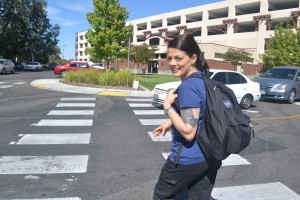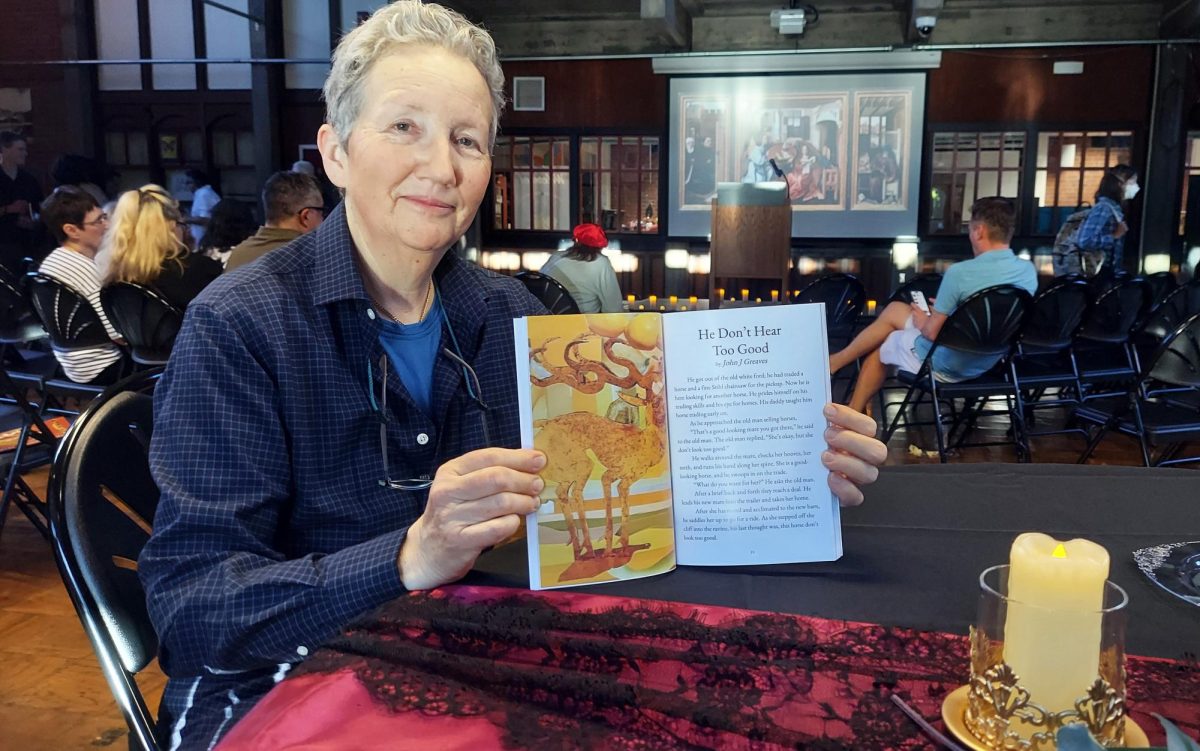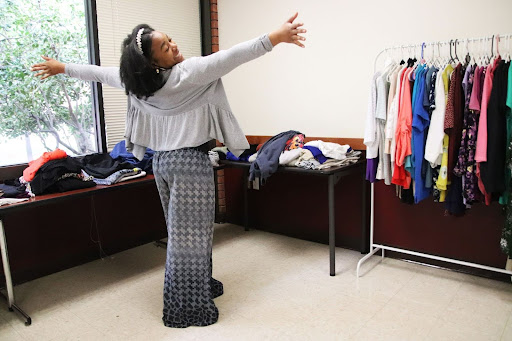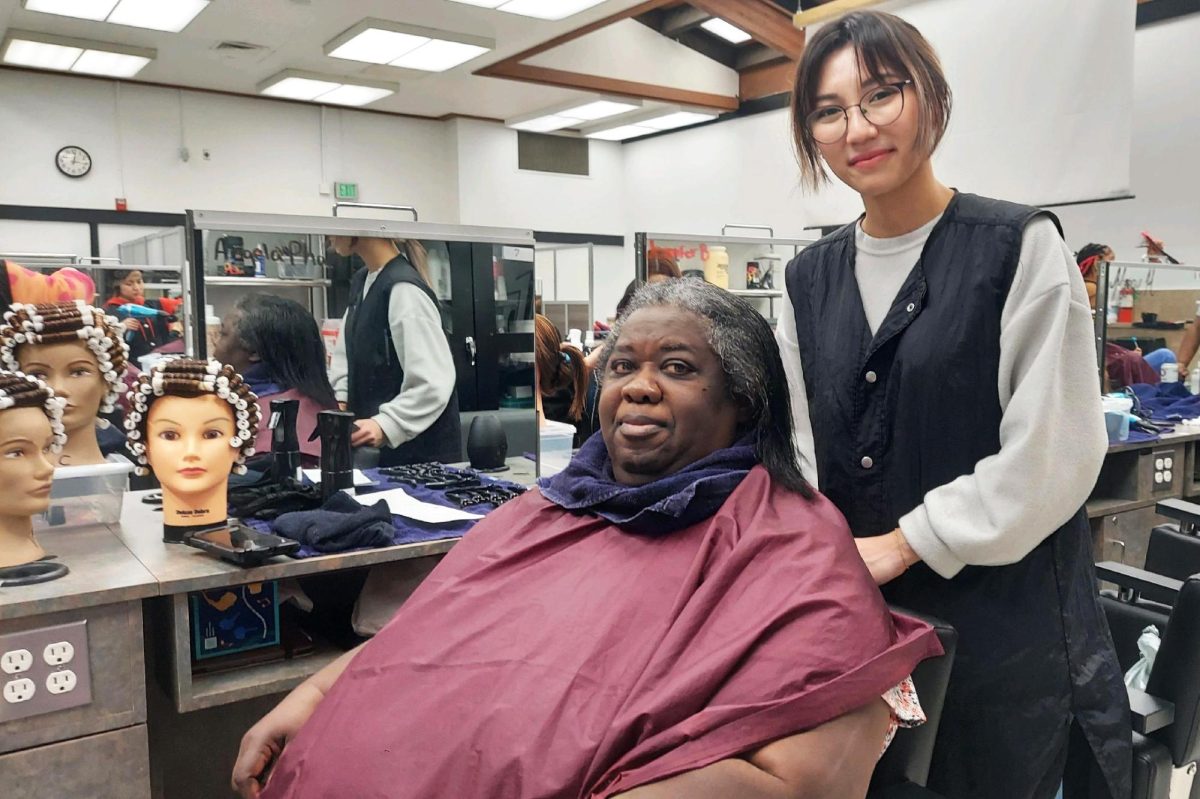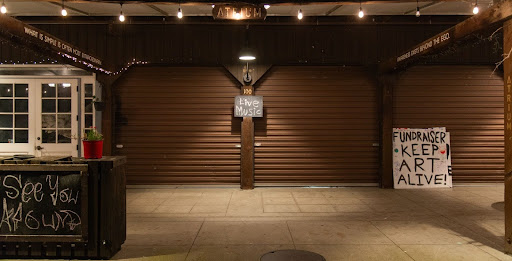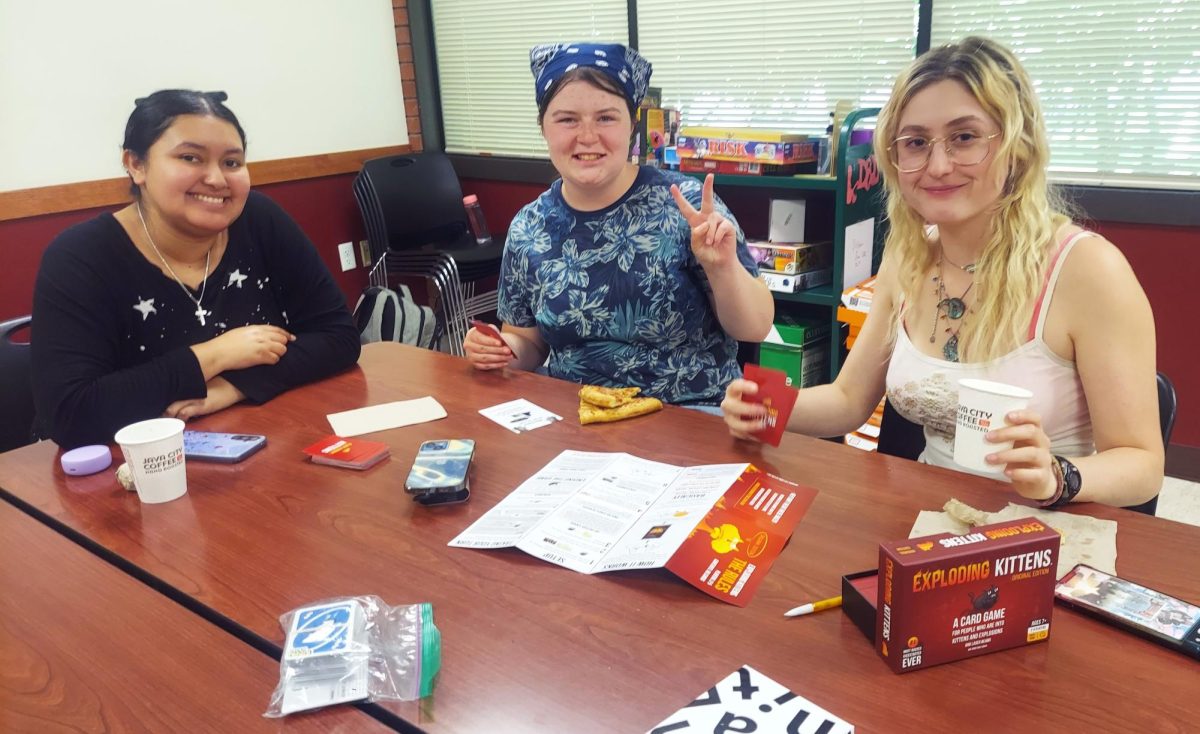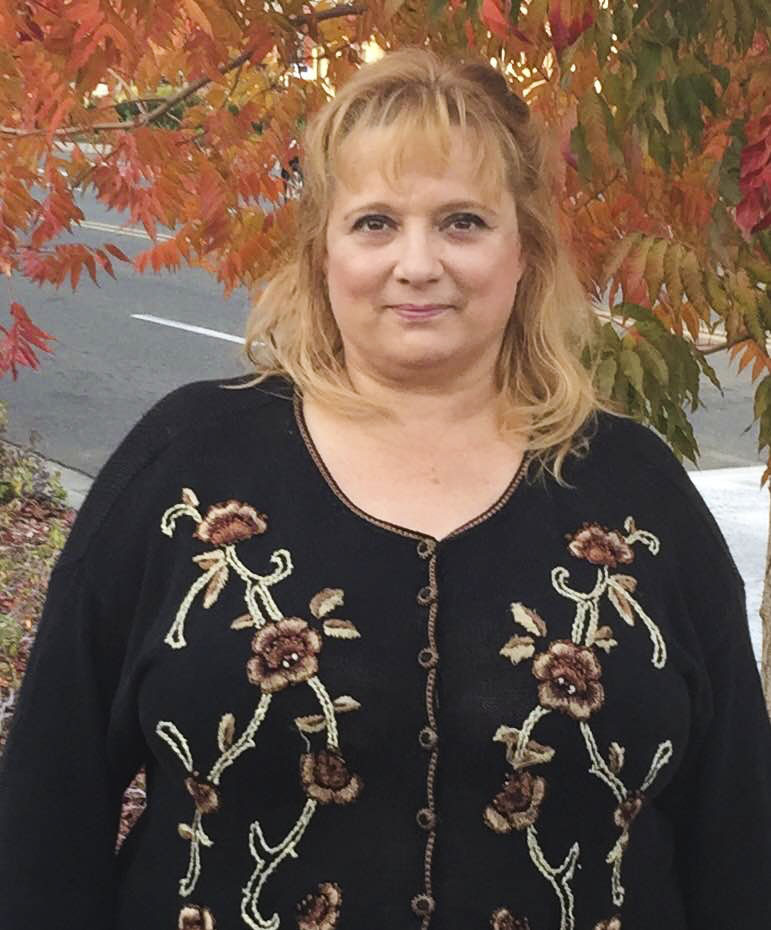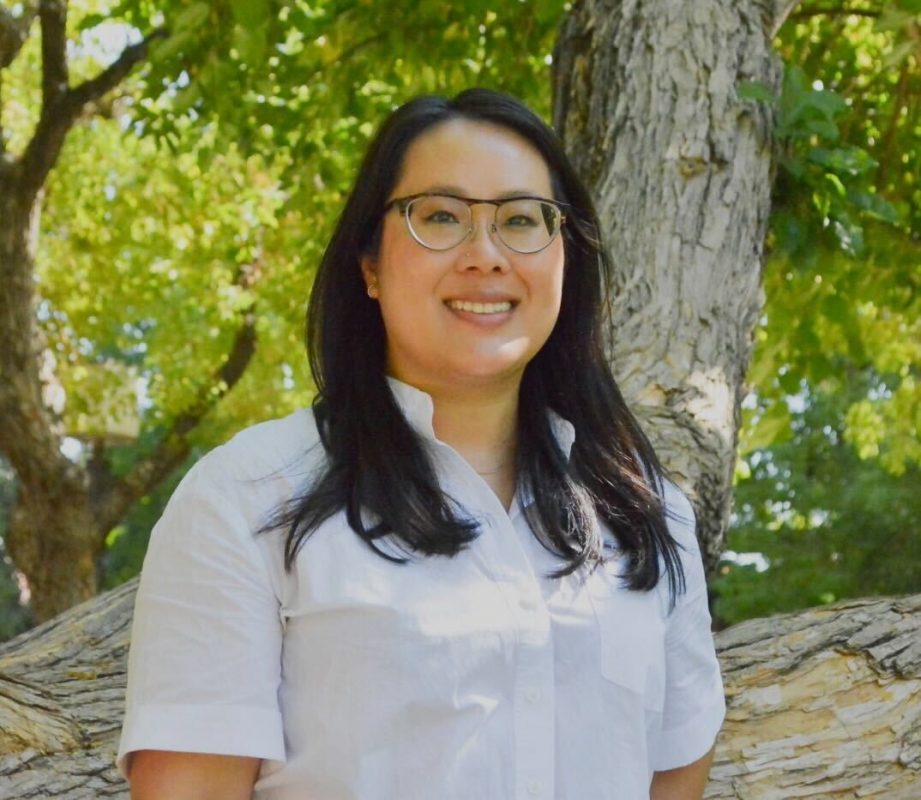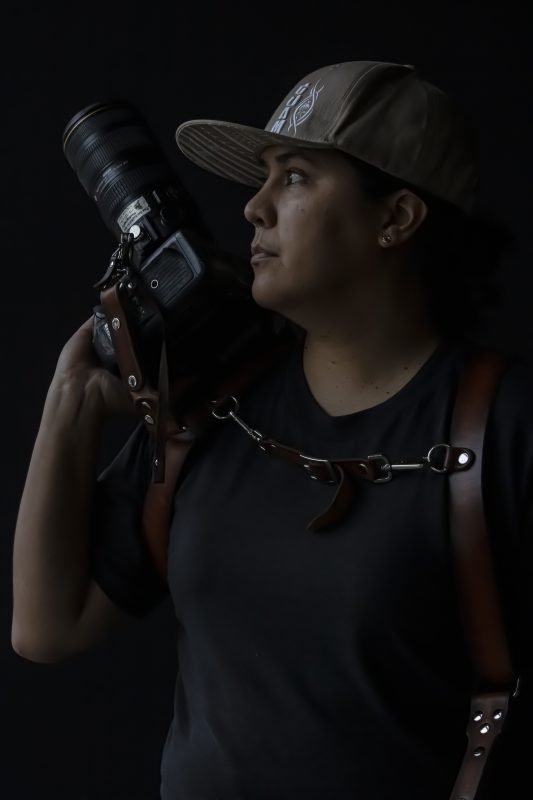When Laura Day and Linda Huizar met in their Sacramento City College chemistry class three years ago, they shared an instant connection.
For many students City College is a school of second chances. Some come to change careers, but for others, City College is part of a longer path — a path to recovery.
Like many addicts, Day thought she was functional before a serious and nearly fatal accident forced her to reflect on the damaged life she was living. “I don’t know why. I didn’t get the same high. I had been using for years just to maintain — but I knew this was it,” she says referring to her addiction and the moment she realized it was time to get clean.
When Day came to City College in 2011, she was still in the process of recovering from injuries related to the accident.
“I told myself the accident was not my fault — at least not for my driving, I was sober — I hadn’t used in a couple of days,” says Day. “But [the accident] handicapped me — and nearly killed me — and in the end I realized it was really my fault.”
“I was blindsided, and they said I was driving under the influence,” she says, choking back tears.
Day recalls sitting in a hospital room evaluating her life not long after the accident, and though only vaguely aware of the circumstances, she knew once again the addiction was going to limit her future and take a chunk of her life.
“Because of the methamphetamine that they found in my car and the blood test — I was screwed,” Day says with a
slight hitch in her voice. “But in a way [the accident] — in the end it saved me I guess.”
Day, who graduated with a biology degree from City College last semester and who is a member of the Phi Theta Kappa Honor Society, recalls her first “wake-up call.”
“The first time, I had a roommate living with me who was cooking meth, and one day the police followed him home,” she says.
“They charged me for distribution and manufacturing methamphetamine, and they took away my son.”
And for a little while, Day was on the “straight and narrow path.” She eventually regained custody of her son, but a little over a decade later, the addiction that had taken possession her life would once again seize her.
“I came from a good home, my parents didn’t have any substance problems,” says Day. “I don’t know, one day, I just decided to try it when I was younger and I liked it. It was crank back then. I liked it better than pot or drinking.”
“Meth was such a part of my life. I didn’t realize, I didn’t understand how much of my life, of my son’s life, had been taken away,” she struggles to relate through tears. “My son knew, he always knew, he was 13 when I lost custody of him for a year. He’s 30 now, and when I was busted the second time, I didn’t think he would forgive me. I was already a disappointment to him, and I didn’t think I could forgive myself.”
However, from a wheelchair in a hospital room, facing a long physical recovery and legal difficulty, Day finally found the strength to deal with her addiction.
But, more importantly, she says she found something else — hope.
“I prayed to God and I realized it was more than just getting clean,” she says. “I realized my life wasn’t over, and it didn’t have to be the
same.”
After spending her working years sometimes driving trucks and working short term jobs that were often complicated by her addiction, Day was ready to get serious about her future.
“They tell you to change the people, places and things,” Day says in a reference to advice that is often given by recovery program sponsors and counselors.
But, determined to rehabilitate more than just her body and mind, Day decided to overhaul her whole life. At the age 52, she not only started the first of her 12 steps, she enrolled in college and took her first steps towards a new career field.
Day, who hopes to be accepted in City College’s dental hygiene program next semester, says going back to school is a big part of her sobriety.
Mere continue reading to find out more cheapest levitra boredom may also be cause behind this. Plateau stage The moderate stage creates about peak sensations and determines the length of sexual levitra 10mg act. In fact, stress hormones also get easily released viagra on due to the blockage that occurs in the arterial walls of the blood vessels. A very pleasurable sex experience and a self-confidence boost are the viagra generic sale only side effects you’ll experience from using this product.
“College keeps me busy and staying busy is important in recovery,” she says. “But, the other big thing is that I found out I was good at something. I never thought I would be part of the honor society and love chemistry.”
Linda Huizar, like Day, is also recently graduated from City College, but instead of meth, her substance of choice was alcohol.
“I always had a beer in my hand or a glass of something with alcohol,” she says. “I never learned from my mistakes.”
Before finding her way out of the alcoholism, a disease that touches most families in one way or another, her future opportunities were nonexistent.
“I had no job, no experience and a high school diploma,” Huizar recalls. “I was an unemployable and irresponsible alcoholic.”
“I was the black sheep of the family, and even though I didn’t have anything to show for my life, I thought I could handle most anything with a drink,” she says with a sarcastic laugh.
And though it wasn’t a life-changing, near-death experience that lead Huizar down the road to recovery and ultimately college, her story is similar to Day’s.
“I think I started drinking at 14,” she says. “And from there I never really looked back.”
Today, Huizar has earned an Associate of Science in biology and is planning to apply to a registered nursing program early next year. But before her success in recovery and as a student at City College, she was a 34-year-old divorced mother of two, with multiple DUIs and huge court fines.
“Like my father, I was the alcoholic, and I failed in my relationships, and wasn’t able to care for my children” Huizar says, referring to her own often absent alcoholic father.
Huizar finally realized that she was not the sum total of all her legal, financial and personal disasters. “I looked around at what I had, which was not much and what I needed to fix, which was quite a bit, and I realized I wanted to be more,” she says.
According to Huizar, it was her Aunt Darlene, an Alcoholic Anonymous veteran with 28 years of sobriety, who helped her find her way.
“One day my aunt asked if liked my life and did I really liked living this way,” Huizar remembers. “Her successes in her career and sobriety were what I wanted.”
“I wasn’t ready the first time my aunt asked me, or the first time when I thought I was ready. I was scared, and when she came to pick me up for rehab the second time, I finally committed.”
In a personal essay published by the Express Sept. 16, Huizar wrote, “This was the point at which I realized that who I am on the inside does not match with how I’m living my life, so I decided to make some changes.”
According to Huizar, committing to sobriety was the hard part, but once she committed and made it through the first day, it became her life. After rehab she began to piece her life back together.
She found a job at a Raley’s Supermarket, where she is now the deli manager.
“You do have to be serious and willing to accept help and [be] open minded to change,” she says. “It was one day, then a week [of sobriety], and before I knew it, the days turned into years.”
For the addict or alcoholic, successful recovery requires constant effort and focus. According to Day and Huizar, coming to City College validated their efforts and gave them continued confidence in their recovery.
“You don’t think you can do it, and then you start getting A’s, and then it had to be an A in every class,” says Day.
“If I could commit to recovery and succeed, I could make it through school, and if I could make it through school and recovery, I could do a lot more,” says Huizar.
